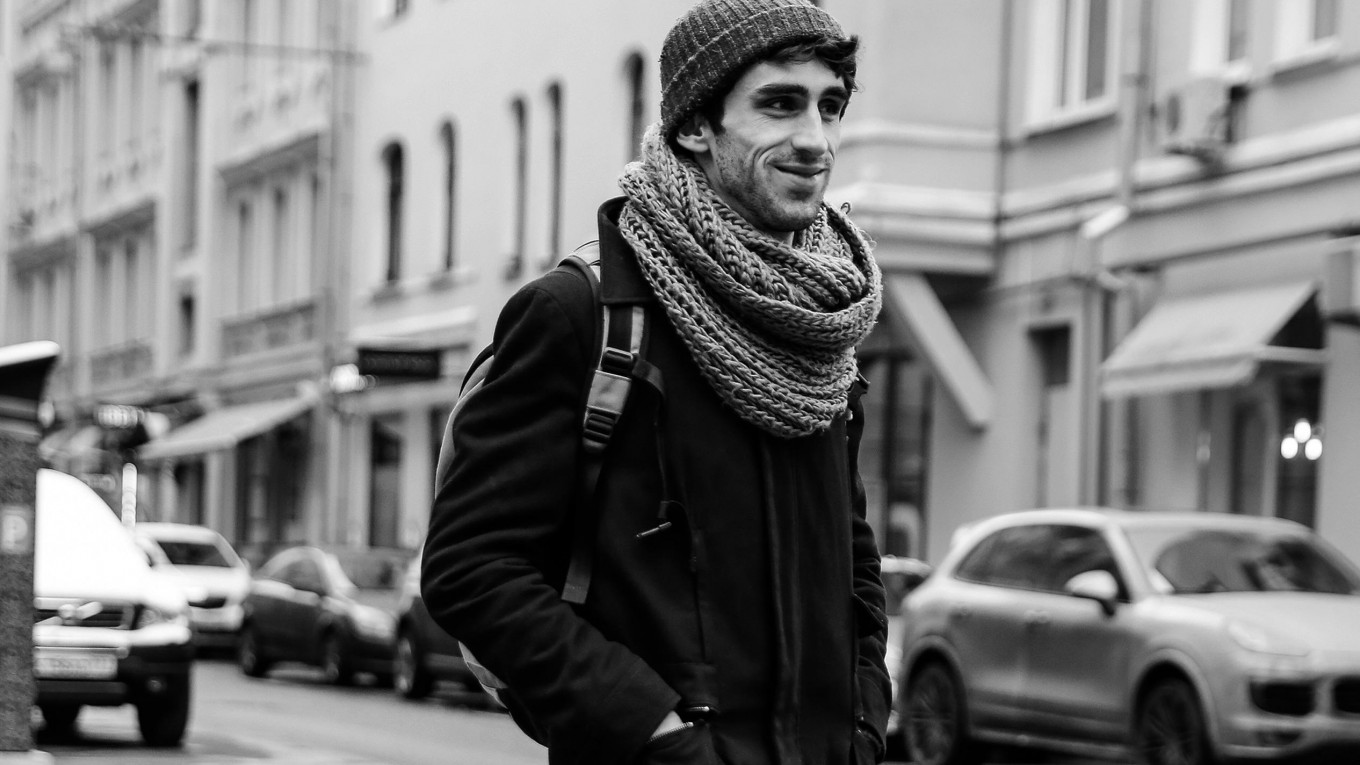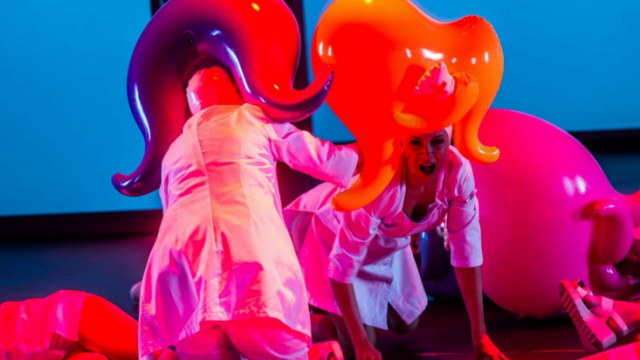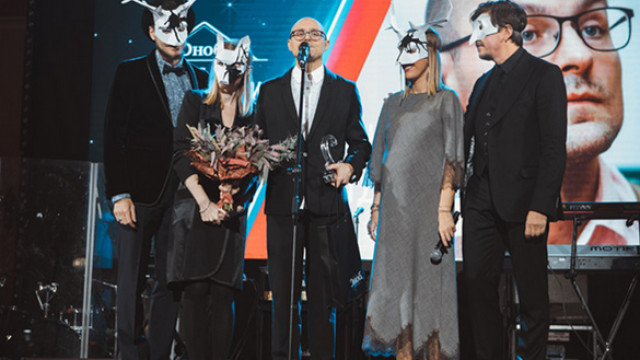Home for Stephen Ochsner is in the middle of the Rocky Mountains, in the heart of the United States. But the 28 year-old American has re-invented himself as a Russian actor in Moscow.
How did this happen? Ochsner had always dreamed of a life on stage. He fell in love with Russian theatre after reading all of Anton Chekhov’s plays. So when he graduated from Oklahoma City University in 2008, his first move was to travel to the Russian capital for a three-month course at the Moscow Art Theatre’s American Studio.
One of his mentors there, Ochsner reminisces, told him that “Russia is like a disease, some people come here, get infected and then can’t stop coming back.” That was to be Ochsner fate, too. He returned to the U.S. to finish his studies and got a job at a Chicago theatre for a short while. But he spent most of his free time studying Russian and trying to meet Russians. “I thought: well, I should just move back to Russia!” he says.
Ochsner then returned to Moscow in 2011 to study at the Moscow Art Theatre, later transferring to the Russian State Institute of Theatre Arts. Looking for work, he began rehearsing in the city’s Meyerhold Theatre Center.
Immersing himself in Moscow’s theatre circles, he started to notice the biggest differences between Russian and American cultures. “When Americans are not talking about sports or politics, they usually switch to discussing music. A lot of people strongly identify with the type of music they listen to,” he says. Russians, he says, prefer talking about literature: “If Americans love going to concerts, then Russians prefer theatre.”
At the Meyerhold Centre, Ochsner met theatre director and his future wife Zara Antonyan, who was at the time finishing her master’s degree in drama. She asked him if he could star in “Sententsii Panteleya Karmanova,” based on one of the first stories written by Russian playwright and director Ivan Vyrypaev. The play is about Panteley Karmanov’s eleven-year prophetic journey from Siberia to Moscow in post-Soviet Russia.
The two went on tour with the play around Russia, Lithuania and Zara’s homeland, Armenia. During that time, their relationship changed. “It shifted into us being interested in starting a life together. So that’s exactly what we did!” says Ochsner. In 2015, the couple moved to Armenia to continue working together and start a family. Today, the actor’s life is split between two cities: “I spend two weeks in Moscow, a week in Yerevan, then back to Moscow.”
After starring in “Sententsii” for a few years, Ochsner received an offer from Vyrypaev to adapt the story for an English speaking audience. The journey now takes place in America and the main character’s name has been changed to Peter Pockets. Aside from Moscow’s Meyerhold Center, “The Maxims of Peter Pockets” has also been shown in Colorado and New York City.
Whilst performing at the Meyerhold and having brief appearances in Russian films and TV series, Ochsner also plays in a theatrical concert band called SousKefal (which roughly translates as “GoatfishSauce"), a Russian-American band which performs their own songs written in a style — “junk folk” — they invented themselves.
There are many things Ochsner loves about Moscow. But above all, he praises the city’s transport system. “The metro is louder than in any other European city but in terms of convenience and being able to plan one’s day, it’s unbeatable,” he says. Back home in Colorado, he adds, you can’t even get a job if you don’t have a car. He also enjoys Moscow’s green spaces. “I’ve never been to a city where I love being in the parks more than in Moscow.
In the nine years since he first came to Moscow, the Russian capital is almost unrecognizable. “It used to feel like this kind of wild place and more third world,” he says. A lot has changed: the city is much cleaner and there are fewer kiosks. “They had a certain exotic charm that’s missing now,” he says. But, on the plus side, Ochsner feels the city feels safer without them.
Naturally, the place is far from perfect. “I don’t like the really long dark winter months and the slush that destroys your shoes,” he says. And roadrage is a serious problem, too. “It is absurdly aggressive,” says Ochsner.
But Moscow’s current culinary revolution makes up for all
of this. “The quality of food and drinks in the city has vastly
improved and has washed over the pompousness,” he says.
“Life in the Russian capital is getting much better.”
A Message from The Moscow Times:
Dear readers,
We are facing unprecedented challenges. Russia's Prosecutor General's Office has designated The Moscow Times as an "undesirable" organization, criminalizing our work and putting our staff at risk of prosecution. This follows our earlier unjust labeling as a "foreign agent."
These actions are direct attempts to silence independent journalism in Russia. The authorities claim our work "discredits the decisions of the Russian leadership." We see things differently: we strive to provide accurate, unbiased reporting on Russia.
We, the journalists of The Moscow Times, refuse to be silenced. But to continue our work, we need your help.
Your support, no matter how small, makes a world of difference. If you can, please support us monthly starting from just $2. It's quick to set up, and every contribution makes a significant impact.
By supporting The Moscow Times, you're defending open, independent journalism in the face of repression. Thank you for standing with us.
Remind me later.






